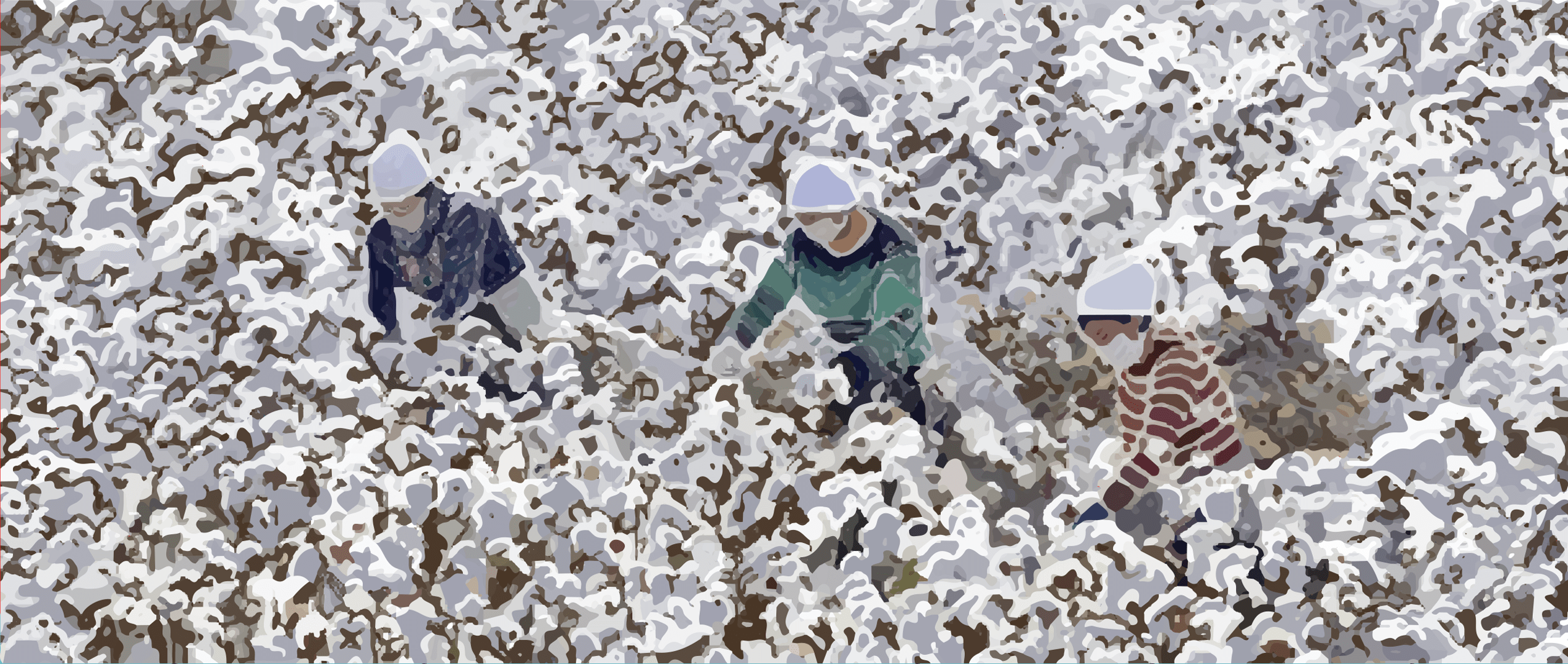Have you ever thought about how the shirt you’re wearing was made?
What if it turned out that some of the people who helped make your shirt were working against their will in concentration camps, as part of a modern-day system of slavery? If you knew about the lives of these workers and their names, would you still want to buy and wear that shirt?
Researchers have verified that the video above was taken in Xinjiang, located in the northwestern region of China. Referred to as East Turkestan by locals, Xinjiang is home to China’s ethnic minority, the Uyghur Muslims. Uyghurs speak a different language, recognize their own unique traditions, embrace religion, and are not of the dominant Han ethnicity.
These are the people who helped make your shirt.
The Uyghur Region, which exports 20 percent of the world’s cotton, has become the world’s largest open-air prison. Uyghurs ― along with Kazakhs, Tajiks and other Muslim minorities ― are advertised as “government sponsored” laborers online, where advertisers list a “price per head,” and promote their “military style management” and ability to “withstand hardship.” They are sold or assigned to factories, which are reminiscent of concentration camps from WWII, with long working hours and poor living conditions, where they are regularly subject to severe mental and bodily harm, and torture. Thousands of Uyghurs were transferred out of the Uyghur Region to work in factories across China starting from as early as 2017.
By day, factory security guards heavily monitor each and every movement, creating an atmosphere of fear among the Uyghur workers. By night, the Uyghurs take part in “re-education” courses which force them to renounce their unique cultural and religious heritage.
These factories, surrounded by towering fences and countless security checkpoints, supply dozens of Chinese companies and international brands; many of which are some of the world’s most famous fashion names, such as Calvin Klein, Gap, Zara, Tommy Hilfiger, North Face, Victoria’s Secret, and Polo Ralph Lauren.
There’s a good chance that your shirt, your shoes, your mask and the device you are using to read this are made by Uyghurs from the Uyghur Region. “Virtually the entire apparel industry is tainted” by such forced labor, according to the Coalition to End Forced Uyghur Labour. Coercing and trafficking Uyghur Muslims into forced labor is part of a broader strategy conducted by the Chinese government to control, dehumanize, and eventually eliminate the entire Uyghur population.
Luckily, governments around the world are beginning to take notice. More than twenty countries ― including Canada, the United States, Australia, Japan and the United Kingdom ― have delivered a joint statement to the UN condemning China’s egregious human rights violations in the Uyghur Region. The United States imposed sanctions on eleven Chinese companies directly involved in China’s human rights abuses and is considering further legislation preventing companies from importing goods from the Uyghur Region unless they can prove the goods are free from forced labor. In Europe, MEPs Hilde Vautmans and Raphaël Glucksmann have pressured the European Parliament to enact legislation sanctioning Chinese officials and spearheaded a campaign to pressure companies to end all ties with Uyghur forced labor. The result of these efforts may lead companies to slowly switch suppliers and move away from forced labor.
However, sanctions and international condemnation can only go so far if consumers continue to willingly support companies that ignore the abuses committed in their supply chains.
So what can consumers like you and I do? More than you might think.
As a result of the pandemic, we have a fresh opportunity to rebuild the struggling fashion industry by embracing our responsibility to shop ethically. Think twice when you see a “Made in China” label on the clothes you are buying. Instead, consider supporting brands that are transparent in both their business dealings and their supply chains. Be proud of the fact that your clothes are ethically sourced. Urge and pressure your favorite brands to disclose not only how products are made but also who makes them.
Without constant pressure from consumers, companies will hesitate and delay as long as they can. If we act together as a society, we can make a bold statement condemning the Chinese government and the companies that profit from gross human rights violations.
The next time your cursor hovers over the “Add to Cart” button, think for a moment about the tortured and beaten man who washed that affordably-priced garment in chemicals to give the material its soft feel. Remember the woman with a shaved head, separated from her children, who stitched its parts. Consider that this man and woman have no choice: they are incarcerated in a system that does not reward them for this work.
It’s not enough to live by our values ― we must wear them too.
The Human Rights Foundation has joined a coalition of civil society organisations and trade unions united to end forced labour and human rights violations perpetrated by the Chinese Communist Party against the Uyghur population and other Turkic and Muslim-majority peoples.
